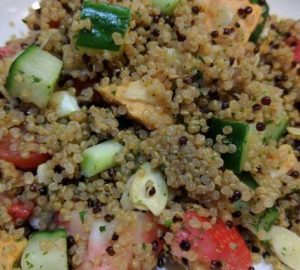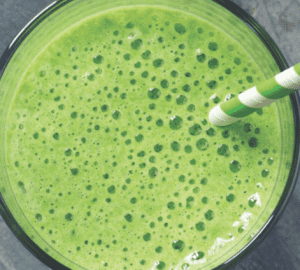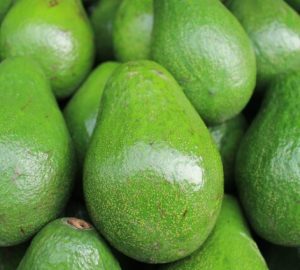Five essential nutrients to fuel your swimming
The human body requires consumption of 50 essential nutrients to ensure optimum health. Every time you eat is an opportunity to nourish your body. If you’re completing quality training sessions with a focus on a particular event or challenge, then you are an athlete and your body has specific nutritional needs to achieve the best from your training. Certain nutrients are vital for your muscles, metabolism and immune system to work efficiently, but moderate to vigorous exercise increases the loss of these nutrients. Committing to an active lifestyle could leave your nutrient stores depleted and result in symptoms of deficiency, which in turn will impact on your progression and performance.
We’ve put together a list of the top five nutrients essential for swimmers, together with an idea of where to find them, how to incorporate them into your daily diet and a few quick-and-easy smoothie recipes.
1. Vitamin B
This complex micronutrient includes vitamins B1 (thiamine), B2 (riboflavin), B3 (niacin), B5 (pantothenic acid), B6 (pyridoxine) and B12 (cyanobalamin) – all of which are essential for converting fats, proteins and sugars into energy and for producing red blood cells. Athletes with low levels of these micronutrients will not perform well during high-intensity or endurance exercise.
The RDA for each is: B1, 1.4mg; B2, 1.6mg; B3, 18mg; B5, 6mg; B6, 2mg; and B12, 1mcg.
To meet your daily quota of each, eat more asparagus, broccoli, spinach, bananas, potatoes, dried apricots, dates and figs, milk, eggs, cheese, yoghurt, nuts and pulses, fish, brown rice and wholegrain cereals.
This smoothie will help boost your vitamin B levels quickly:
1/4 cup almond or soy milk
1/2 cup pineapple juice
1 cup pineapple chunks, fresh or frozen
1 banana, peeled
2 teaspoons flaxseeds
1 tablespoon wheatgerm
1 teaspoon hemp oil
2. Vitamin D
Vitamin D has long been studied for its role in muscle health. A noticeable symptom among people who have a vitamin D deficiency is muscle weakness.
Without enough of this nutrient, the mitochondria in muscle fibres can’t adequately regenerate energy after your muscles contract, making you tire easily in training, hindering progress and resulting in muscle strains.
The RDA is 5mcg. Fifteen minutes of sunlight is all we need daily to top up our vitamin D, in the UK, but unfortunately winter sun hasn’t got enough ultraviolet B (UVB) radiation, so we need to up our consumption of Vitamin D rich foods to compensate.
Food sources include fatty fish (tuna, salmon, herring and mackerel), cottage cheese, egg yolks and fortified milk.
3. Vitamin C
As open water swimmers, we’re not afraid of cold seas, lakes, rivers and lidos, but those chilly conditions can easily compromise our immune systems. Some infectious organisms, like flu viruses, thrive in colder temperatures and our exposure to the cold suppresses our immune system, making it all together easier to fall prey to the dreaded lurgy. Vitamin C significantly decreases the likelihood of picking up the common cold by strengthening our immune system and helping us to fight infections. It has also been shown to reduce coughing, wheezing and shortness of breathe during and after exercise, so is an essential nutrient for swimmers with asthma.
The RDA is 60mg and swimmers can up their intake by munching on bell peppers, watercress, cabbage, broccoli, cauliflower, strawberries, oranges, kiwis, limes and kale as often as possible.
Try this immunity boosting smoothie before you dive into the cold water this season.
1 cup of spinach
1 cup water
1 small peeled orange/tangerine
½ banana
¼ cup of peeled chopped carrots
1 cup of strawberries
¼ cup of blueberries
4. Iron
As a component of haemoglobin, iron transports oxygen and carbon dioxide to and from our cells and is therefore vital for energy production. Prolonged swim training and intense training schedules could deplete your stores of this mineral. Losing too much of your stores may result in iron-deficiency anemia, which causes exhaustion, fatigue and halts your ability to perform well in endurance training sessions or events.
The RDA is 14mg and can be acquired easily by snacking on pumpkin seeds, almonds, prunes, cashew nuts, raisins, brazil nuts and pecans throughout the day to keep your iron stores top heavy.
5. Magnesium
Magnesium is a component of more than 300 enzymes involved in energy metabolism and plays an important role in bone formation. It helps to strengthen bones and promote healthy muscles by helping them to relax. We lose magnesium through sweat, so it’s important to ensure we top up this nutrient after a training session, especially if you’re a heavy sweater. In the water we aren’t aware of how much we sweat, so it’s important to keep on top of our magnesium intake and consume the RDA of 300mg
Pop some leafy greens sautéed in garlic on your dinner plate, snack on almonds, cashew nuts, brazil nuts and peanuts and swap your grain for quinoa every now and again.








